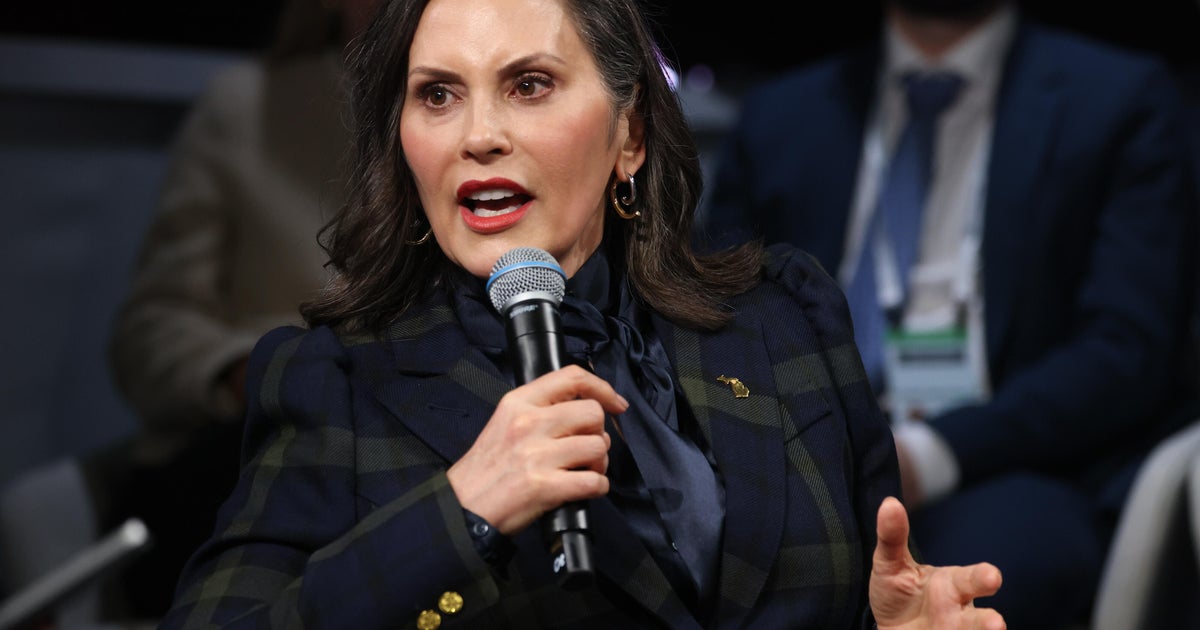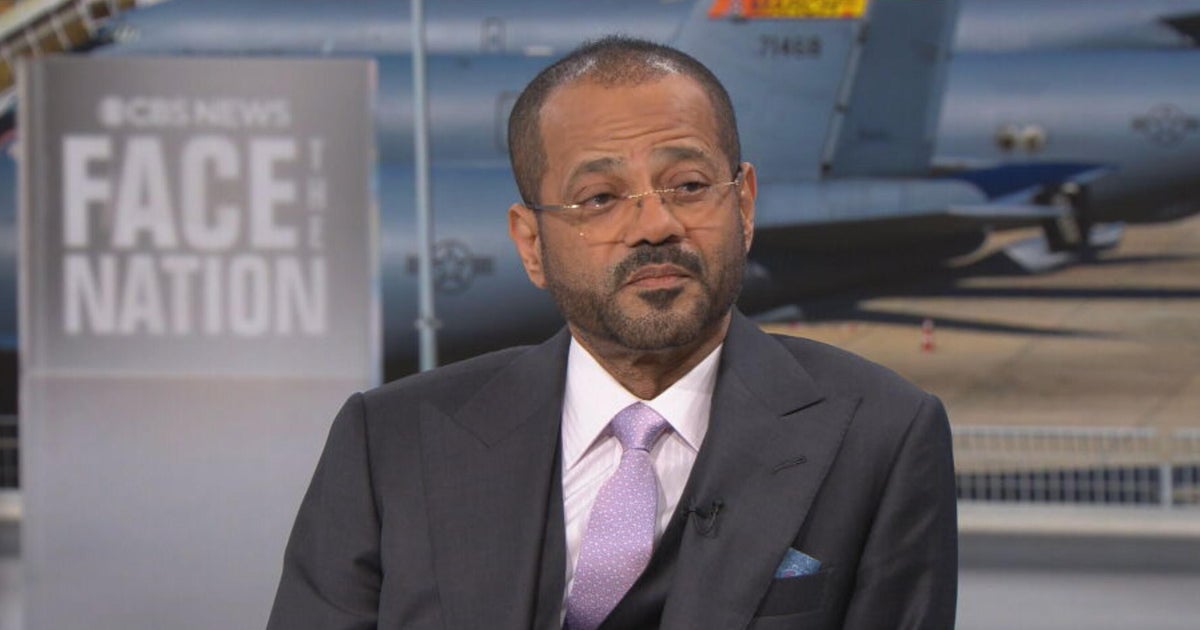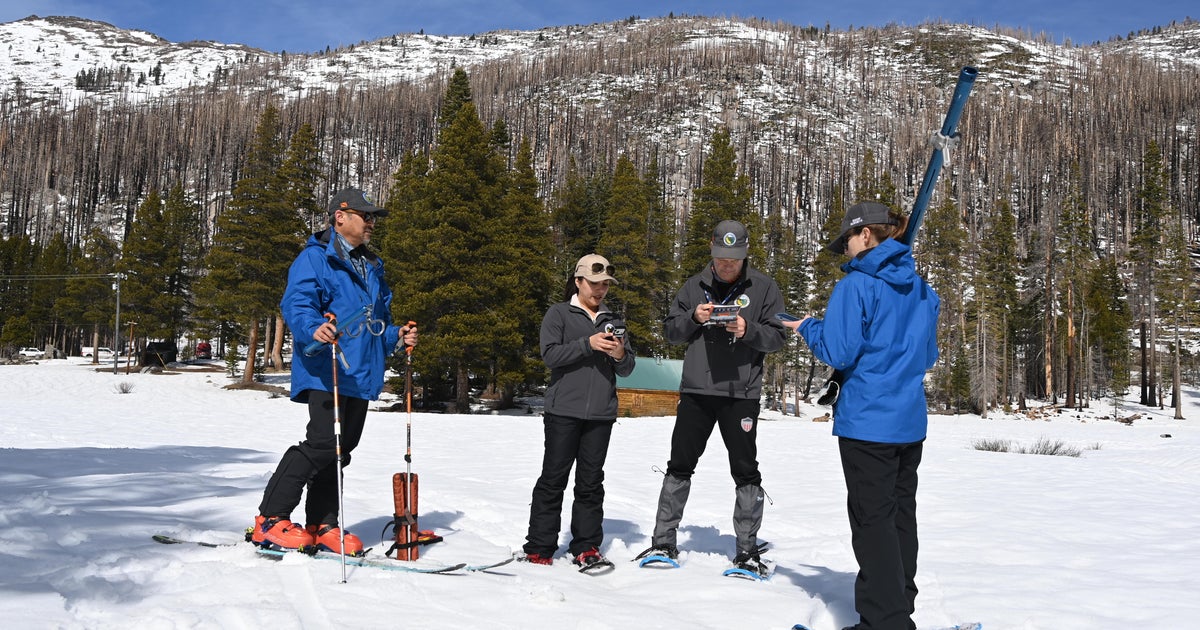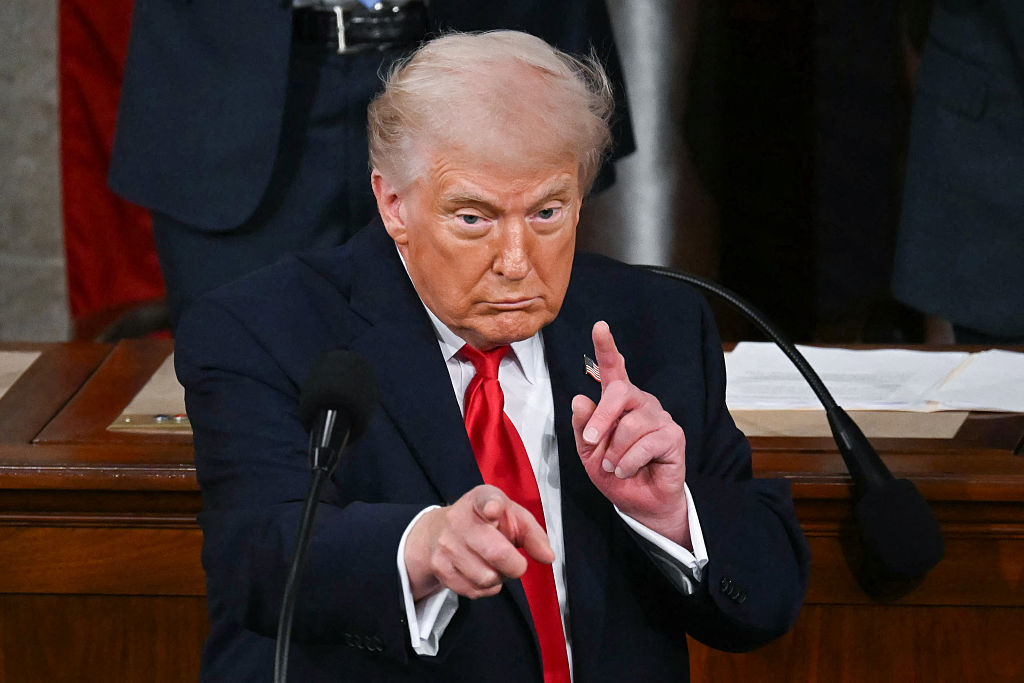Transcript: California Gov. Jerry Brown on "Face the Nation," Nov. 18, 2018
The following is a transcript of the interview with California Gov. Jerry Brown airing Sunday, Nov. 18, 2018, on "Face the Nation."
MARGARET BRENNAN: California Governor Jerry Brown toured the devastation along with President Trump and other officials. Governor, thank you for joining us.
GOVERNOR JERRY BROWN: Thank you. Glad to be here. Glad you're out here, right out where the fires are and we're- we're experiencing some difficulty.
MARGARET BRENNAN: I understand that more than a thousand people are unaccounted for, 74 are dead. How did these fires, the worst in your state's history, get so out of control?
GOV. BROWN: Well you're asking how they got out of control- how they started is now a subject of investigation. But obviously some fire source got it going and then it- the conflagration occurs because the brush, the vegetation is so dry and the humidity is so low. And when you have that- that and then the heat and the use of drought that gets it going. And in Paradise there were a lot of buildings that also caught fire and then it just went from one to the other. So it's a mixture of many things. And the president's talked about how our forests are managed, that's an element but there's also the way the houses are built, the materials, what kind of vegetation is around. And there there's also the changing climate and the increasing drought and the lower humidity and water vapor. All of that is combining to create the tragic situation that we saw today in both Northern California and here in Southern California.
MARGARET BRENNAN: As you- as you, say the president did acknowledge that he said climate change might be a factor, "a little bit" but he primarily blamed forest management as the cause here. Is California to blame here for its own problems?
GOV. BROWN: Well where Paradise is, of course, is surrounded by federally managed land. These are national forests. They are not state parks and they're not private property by Californians so it is the federal government. And the fact is that managing the forest is part of it. They are a lot denser than they were 200 years ago. But on top of that, we have this five year drought. We have reduced rainfall. We have the dryness that turns vegetation and bushes and houses and trees into- literally into timber. So it was ready to explode. So there- there is an atmospheric element which is part of the natural cycle and then there is an increasing effect of climate change. In fact, I have read, specifically peer reviewed scientific articles that say that the amount of- of land burnt in California over the last 15 years has doubled because of climate change, so--
MARGARET BRENNAN: Did you make that case to President Trump?
GOV. BROWN: I certainly raised it but I didn't feel that that was where we needed to go. We need the money. We need federal help and we need a collaborative and cooperative spirit and we're getting that. But I did say that we're going to look at all the elements that are causing these fires over time and we're going to work in a way to let science be our guide and the president in no way negated that. So I decided to go for an opening and I think over the next months and years you'll see the science becoming crystal clear and even the folks in Washington that are now more in the denialist camp are going to come around.
MARGARET BRENNAN: We'll see on that one. You did say there the federal funds were coming. Did President Trump assure you that he's not going to cut funding as he had threatened to do?
GOV. BROWN: Yes. So that's a big, big win. The president not only has signed a presidential declaration giving California substantial funding, but he said and pledged very specifically to- to continue to help us. That he's got our back. And I thought that was a very positive thing. There have been some back and forth between California leaders and the president. But in this- in the face of tragedy people tend to rise above some of their lesser propensities. So I think we're on a good path, but it's still going to be difficult because the only way to ensure the long term forest health is not just, you know, cutting trees it's going to require reducing carbon emissions and eventually sooner rather than later to zero. And if we don't do that you're going to see these fires not only continuing, but getting worse by the year as they are. The last five years, the fires have never been this bad. This fire in Malibu is the worst they've ever seen. This fire in- in Paradise and Northern California was the worst in the history of California. So yeah, you can mull the science, but I'll tell you every year it's going to get clearer and clearer so that I think in less than five years even the worst skeptics are going to be believers.
MARGARET BRENNAN: What about the human toll? As we said a thousand unaccounted for do you believe that number is going to continue to rise?
GOV. BROWN: I think it will rise. I don't think it's going to be a thousand, I don't know that for sure, but we think by the way the numbers are gathered that that's high. But look, they're narrow streets these fires we're going, and I-I can't even believe it but I'll repeat what the fire people told me. Fires are moving a football length, a hundred yards a second. And-and the roads were very narrow. So there is no way for a lot of these people to get out, and some of them were backed up. Cars blocking the road. Three hours to move a few miles. So that's another thing. If you're going to live this close to the forest, if the climate is going to keep changing, you're going to have to build some kind of underground shelters, so that you can go in and protect yourself not by going three or four miles or by going you know 30 or 40 feet.
MARGARET BRENNAN: That's a pretty stark image. Governor, tell me about what's happening now with the air quality, which we understand is very toxic in some cities like San Francisco. And do you have a sense of the damage being caused by that and the economic hit to your state?
GOV. BROWN: Well, first of all I like to look at my weather app. I look at it a couple of times a day. I never saw on the weather app until yesterday, "Air hazardous to health." And then in other cities I saw "very unhealthful air" and then "unhealthful air" and then "air-air unhealthful to sensitive people." Those categories I never saw before. So yeah this is bad stuff. It's temporary. So in- in some ways it's far less than Beijing or Shanghai, and far less than Los Angeles was in the 50s. So it's not good, but for a few days we'll get through it.
MARGARET BRENNAN: And the economic hit?
GOV. BROWN: Oh the economic impact is devastating to the people who lose their house, their farm, their animals, and not to say their lives, their loved ones, their family, their parents. So yeah, the-the- the devastation is-is at the human level is horrific and- and hard to find words to describe. And economically, yes this is going to cost tens of billions. That's what it's going to cost before we get finished.
MARGARET BRENNAN: Governor, thank you very much. I know you've got a lot of work ahead of you. Appreciate you making time.
GOV. BROWN: Thank you. Thank you.



